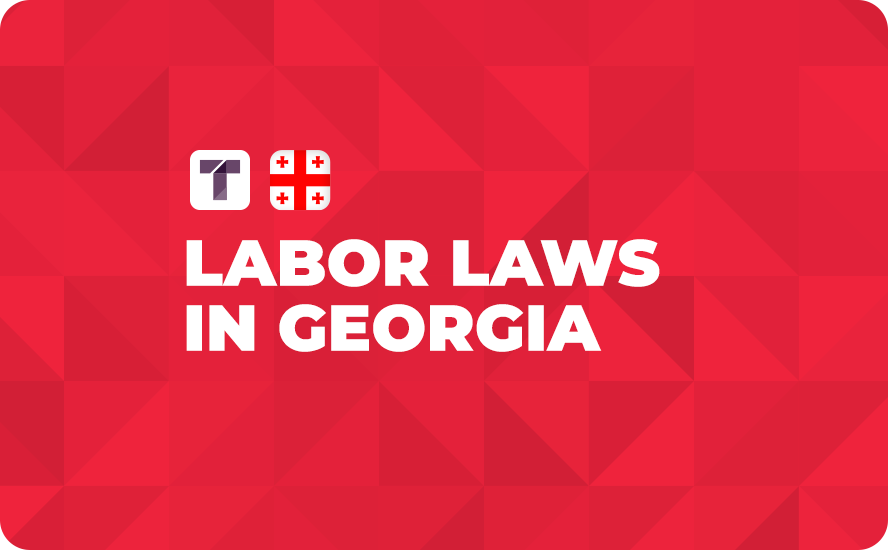Georgia, located at the crossroads of Eastern Europe and Western Asia, offers businesses a strategic location, a developing economy, and a skilled workforce. As opportunities in Georgia attract expanding businesses, understanding the country’s labor laws is essential for successful operations. These laws set standards for employer-employee relationships, outline workers’ rights, and define best practices for businesses in the Georgian market.
This blog post explores key aspects of Georgian labor law, providing insights to help you navigate this regulatory landscape as you build your team.
A Guide for Growing Your Team in Georgia

The foundation of Georgia’s labor laws lies in its Labor Code. This comprehensive document covers various aspects of employment, including contracts, work hours, remuneration, leave, termination, and dispute resolution mechanisms. Familiarizing yourself with the Labor Code is a crucial starting point for any business operating in Georgia. Importantly, Georgian law mandates that employment relationships be formalized through written contracts. These contracts must specify key elements such as job duties, compensation, work schedules, benefits, and termination provisions.
Hiring in Georgia
Importantly, Georgia’s labor laws uphold the principle of non-discrimination, prohibiting discriminatory practices based on factors such as gender, race, ethnicity, religion, age, disability, or political affiliation.
If you plan to hire foreign nationals in Georgia, understanding the work permit process is important. Foreign employees generally require a work permit before starting their employment, and employers typically support the application process. While probationary periods are allowed under Georgian law, they must be specified in the written employment contract.
Read More: Average Salary in Georgia
Working Hours, Overtime, and Leave Provisions
The standard workweek in Georgia is typically 40 hours, spread across either five or six days depending on the industry and specific job roles. Overtime work must be compensated at a higher rate, with limitations on mandatory overtime hours. Georgian employees are entitled to a minimum of 24 calendar days of paid annual leave. In addition, Georgia provides for various other types of leave, including maternity, parental, sick, and educational leave.
Compensation and Benefits
Georgia has a national minimum wage that employers must adhere to. Wages are typically paid on a monthly basis. While not legally mandated, it’s becoming increasingly common for businesses in Georgia to offer benefits packages including bonuses, health insurance, and other incentives to attract and retain top talent.
Termination of Employment
Georgian labor law outlines specific grounds and procedures for employment termination. Termination may occur through mutual agreement, at the employee’s initiative (with appropriate notice), or at the employer’s initiative (allowed only in certain circumstances and requiring adherence to strict procedural rules). Severance pay may be applicable depending on the specific circumstances of termination.
The Advantages of an Employer of Record (EOR)
Navigating Georgia’s labor laws, managing payroll accurately, and ensuring compliance with local HR practices can be complex for businesses entering the market. An Employer of Record (EOR), like Truss, can streamline your operations. EORs handle regulatory compliance, administer payroll and benefits, and provide ongoing HR support, ensuring that your expansion into Georgia is smooth and successful.
Employer of Record VS Staffing Agency
Tapping into Georgia’s Potential
Georgia presents exciting opportunities for businesses with its strategic location, developing economy, and skilled workforce. By understanding Georgian labor laws and partnering with the right specialists, you can confidently build a strong team and achieve your business goals in this dynamic market.

